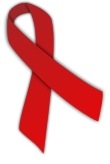 |  |
Kofi Annan, UN Secretary General on World AIDS Day, the 1st December, 2002 has said:
|
HIV is:
HUMAN
isolated to the human species
IMMUNO - DEFICIENCY
lacking the ability to fight off infectious agents
VIRUS
a disease causing agent
What is AIDS?
However, HIV is not transmittedAccording to National Aids Control Organization (NACO), the HIV estimates have been worked out to be 3.82 million and unaccounted 4.58 millions in the year 2002 and the same have been increasing. Now, India has 51 lakhs people living with HIV/AIDS, which is highest in our Country after South Africa.
ACQUIRED
must do something to contract it
IMMUNO
ability to fight off infectious agents
DEFICIENCY
lack of
SYNDROME
cluster of symptoms that are characteristic of a disease
- Through Air - sneezing, coughing or breathing.
- Through casual physical contact, such as touching, hugging or kissing
- Through water - through use of common swimming pools etc
- Through toilets
- Through mosquitoes
- Through sharing the same utensils, phones etc
- Infected Blood
- Infected needle
- Multiple partners
- From and infected mother to her baby before birth
- Injectable drug abuse
- Practising safer sex - keeping to a single partner, use of condoms etc.
- Using clean, sterilized needles and avoiding unnecessary skin piercing
- By never sharing injecting drug equipment
- By receiving blood transfusions only when necessary and only with properly screened blood
AIDS (Acquired Immuno-Deficiency Syndrome) is the last stage of infection with HIV (Human Immuno-deficiency Virus).
HIV in India is mainly transmitted through heterosexual contacts placing large parts of the population at risk of infection. HIV/AIDS is not merely a medical problem, the manner in which, the virus is impacting upon society reveals the intricate way in which, social, economic, cultural, political and legal factors act together to make certain sections of society more vulnerable. The epidemic exposes the method and the impact of marginalization and inequality in clear terms.
Marginalized groups in our society have little or no access to basic fundamental and Human Rights such as food, medical services and information. Many of these groups are ostracized by society at large, and their lifestyles criminalized, making it practically impossible for them to participate in mainstream processes whereby they could demand their rights. Coupled with this dismal situation, there is minimal awareness about HIV and no real options for safer lifestyles. The stark reality of the HIV/AIDS epidemic is thus that people are becoming HIV positive because they have no access to basic fundamental Human Rights. For the same reasons, the impact of infection is a lot graver for those with no access to rights. It is time to recognize this link between marginalization, Human Rights and vulnerability.
It is also time to recognize that the HIV/AIDS epidemic itself has give rise to a range of Human Rights violations. The refusal of treatment, denial of access to essential drugs including antiretroviral therapy, discrimination in the health care and employment sectors, women being deprived of their rights and thrown out of their homes etc. are just some examples of these violations. Apart from having a serious impact on the lives of people living with HIV, these violations are pushing the epidemic underground. Unless these Human Rights violations are addressed, there cannot be the creation of an enabling environment, where people come forward to access health and other services, or even get tested.
There is also a need to understand the exact manner, in which factors of gender, caste, region, class, sexual orientation influence the impact of these Human Rights issues for different sections of the Society.
The stigma surrounding HIV/AIDS and certain vulnerable groups affected often leads to discrimination, which constitutes a serious obstacle to HIV/AIDS control and management. It has been established that understanding of human rights issues enhances protection against HIV on both the individual and community level. At the same time, promotion and protection of Human Rights as a central component of the response to HIV/AIDS makes people and communities less vulnerable to HIV/AIDS and mitigates the impact on affected and infected persons.
HIV can today be made a manageable condition, with the use of antiretroviral treatment, along with other mechanisms. The state is under an obligation to ensure that treatment is available, accessible and affordable to all people, who need it. Laws that impact on the cost of treatment, such as drug price control laws and patent laws need to be moulded to fulfill this obligation. This is as much as Human Rights issue as any other.
In order to bring all these realities to the fore, to understand them and to address them effectively, there must be the development of and enabling legal environment which respects and protects the fundamental and Human Rights of those worst affected.
I may also point out some violations relevant facts, provisions, aspects, guidelines, protection of HIV/AIDS and Human Rights as:
Violations of Human rights of People, living with HIV/AIDS
- Denial of health care and treatment
- Denial of and/or removal from employment
- Lack of access to and availability to drugs
- Denial of various services including insurance, medical benefits etc.
- Lack of access to information
- Lack of access to legal remedies
- Lack of strong support system including family, spouses, friends and relatives
- Discrimination against children of HIV positive parents including in admission of these children to schools
- Ostracisation of people, living with HIV/AIDS from community and family
- Prevention of children from playing, interacting or eating with people, living with HIV/AIDS
Issues regarding ethical aspect related to HIV/AIDS
- Screening and testing policies, including screening of pregnant women
- Confidentiality and privacy
- Discrimination at the workplace
- Blood safety and related issues
- Access to and delivery of health care
- Bio-medical research (e.g. development of vaccine and drugs and trials; implementation of public health policies in prevention and control)
Principles relevant to human rights to HIV/AIDS are
- The right to non-discrimination, equal protection and equality before the law
- The right to life
- The right to the highest attainable standard of physical and mental health
- The right to liberty and security of person
- The right to freedom of movement
- The right to seek and enjoy asylum
- The right to privacy
- The right to freedom of opinion and expression and the right to freely receive and impart information
- The right to freedom of association
- The right to work
- The right to equal access to education
- The right to an adequate standard of living
- The right to social security, assistance and welfare
- The right to share in scientific advancement and its benefits
- The right to participate in public and cultural life
- The right to be free from torture and cruel, inhuman or degrading treatment
Government recognises that without the protection of human rights of people, who are vulnerable and afflicted with HIV/AIDS, the response to HIV/AIDS epidemic will remain incomplete. Hence, Government is adopting certain measures to implement an effective rights based response programme, based on the National Aids Prevention and Control Policy.
International human rights have been further codified in a number of legally binding international covenants and declarations such as:
- International Convention on the Elimination of All Forms of Racial Discrimination (CERD - 1965).
- International Covenant on Civil and Political Rights (ICCPR - 1966).
- International Covenant on Economic, Social and Cultural Rights (ICESCR - 1966).
- Convention on the Elimination of All forms of Discrimination Against Women (CEDAW - 1979).
- Convention Against Torture and other Cruel, Inhuman or Degrading Treatment or Punishment (CAT- 1984).
- Convention on the Rights of the Child (CRC - 1989).
International Human Rights instruments play an important role in respect of HIV/AIDS. The declaration of commitment passed as per International Agreement in United Nations General Assembly in June, 2001 and international guidelines of HIV/AIDS in 1996.
The Guidelines address multi-sectoral responsibilities and accountability, including improving the roles of the government and private sector. In addition, they stress the duty of the States to engage in law reform and identify legal obstacles so as to form an effective strategy of HIV/AIDS prevention and care.
The National Human Rights Commission has also taken initiatives to protect the human rights of those affected/infected by HIV/AIDS and various recommendations have been made in this regard.
The National Human Rights Commission in partnership with the National AIDS Control Organisation, The Lawyers Collective, The UN Children's Fund and the UN Joint Programme on HIV/AIDS had organized a conference in New Delhi on 24-25 November, 2000 and an action plan with practical solutions in the Indian context as per international guidelines has been chalked out, in short headings like:
- Consent and Testing
- Confidentiality
- Discrimination in Health Care
- Discrimination in Employment
- Women in Vulnerable Environments
- Children and Young People
- People living with or affected by HIV/AIDS
- Marginalized Population
NHRC has also sent its recommendations to All States/Union Territories on 25 November, 2003 and thereafter 06 September 2004. NHRC in collaboration with the National Academy of Legal Studies and Research University (NALSAR), Hyderabad has published series of books "Know Your Rights" about the basic human rights including human rights and HIV/AIDS. I have also taken some points from this book.
Government of India and National Aids Control Organisation are doing their best and has issued small pamphlets on the subject, which will help in awareness and to prevent HIV/AIDS. Rajasthan State Government with the help of Rajasthan State Aids Control Society has also issued brochures in this regard to be followed by a common man and to prevent HIV/AIDS.
I appreciate the dedicated service rendered by the doctors with the help of Aids Control Society and NGOs and the all concerned, but still it needs more attention so that the common man can follow and prevent himself from HIV/AIDS. It is good that nowadays we are hearing daily advertisements from Radio and TV Channels for its prevention. Such programmes are further required to give awareness, necessary information, education and counseling service at different levels in different departments, contact points with the help of NGOs, Press and Media persons through Seminars and Workshops.
To my mind, political and administrative will is required. It is the duty of all concerned to see the welfare of family members of affected person from HIV/AIDS, in addition to their treatment.
Recently, Commission received 2-3 complaints of HIV/AIDS. Notice was issued to the Director, AIDS. In compliance of the notice, Dr. B.L. Choudhary has furnished detailed reports. It was also reported that 16 organizations in different 12 districts in Rajasthan are working in AIDS Prevention Programme. It was directed that programme should properly be monitored and report should be submitted after every 2 months to the Commission.
If we join together with dedication and determination and implement the policies with preventive measures in letter and spirit, it will be a great service to the mankind and in this way, we can protect our people and prevent its transmission further.